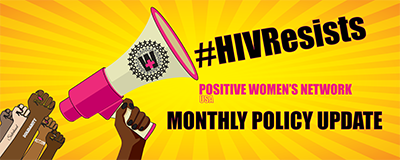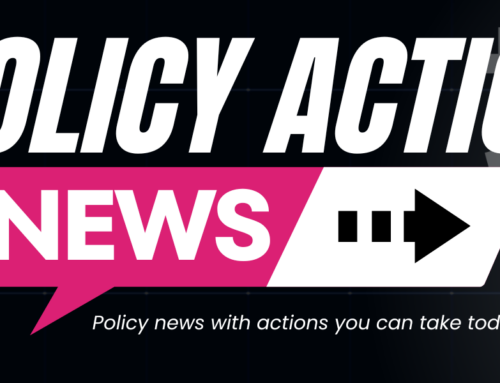It contained additional disaster relief funding – an important addition in the wake of harrowing climate crisis disasters – but otherwise maintains the status quo as Congress works to reach agreement on long-term spending bills. The budget fight is not over and this is not about numbers on a paper. The federal budget funds programs and agencies that impact most aspects of our lives: housing, healthcare, education, child care and so much more. The U.S. House and Senate are still deeply divided on their priorities. The proposed spending bills out of the U.S. House include deep cuts – nearly $500 million – to programs related to HIV prevention and care and harmful “riders” that advance racist, anti-trans and anti-abortion policies. For example, House Republicans have quietly included provisions that would prohibit or restrict funding for racial equity initiatives, gender-affirming care, and abortion access. This divisive approach is likely to make it hard to reach an agreement on the final, long-term funding bills; and the health and well-being of our communities, particularly Black, Indigenous, People of Color, trans* and non-binary people, are in the balance. A federal government shutdown is still possible if Congress does not reach a budget agreement. A government shutdown means that all federal agencies must stop “nonessential” activities until Congress replenishes the budget. The federal government is the nation’s largest employer. As many as 4 million employees could lose pay in a shutdown. While many would receive back pay, subcontracted government employees likely would not. Federal buildings are maintained in large part by subcontracted food service workers, janitorial staff, and security officers, who outnumber direct federal employees three to one. These workers already do not make livable wages, and would then be subject to lost wages which threaten their housing, employment benefits, and personal bills. Here are some things to watch out for if a shutdown does happen: Little to no impact on certain programs. Medicare, Medicaid, and Social Security wouldn’t be impacted. Most of the benefits provided by the Department of Veterans Affairs (VA) would also still be available. However, other regular operations such as career counseling and transition assistance would be suspended. The Supplemental Nutrition Assistance Program (SNAP) would still be available, however an extended shutdown would create administrative challenges and jeopardize the program. Substantial impact on others. With a vast network of federal workers either furloughed or asked to work without payment, there are a host of other programs and services that could be disrupted or slowed. Housing security programs, IRS services, flights and airport security, passport processing, flood insurance, national park services have been negatively impacted in past shutdowns. Immigration courts, for example, have ground to a halt during past shutdowns. During the 2018 shutdown, all non-detained immigration court hearings were suspended. As a result, more than 86,000 immigration court hearings were delayed, adding to the over two million case backlog in U.S. immigration courts. The Special Supplemental Nutrition Program for Women, Infants, and Children (WIC) could be immediately suspended in a shutdown. While individual states may have enough funding to sustain the program for a little while after the shutdown begins, as soon as reserve funds run out, those on the program can no longer access those benefits. States like California and Texas, where a combined 1.759 million WIC recipients live, are likely to run out of reserve funds more quickly. |




 The U.S. narrowly avoided another federal government shutdown.
The U.S. narrowly avoided another federal government shutdown. Two Southern California School districts, in the city of Temecula and Sunol,
Two Southern California School districts, in the city of Temecula and Sunol,  The Texas Supreme Court
The Texas Supreme Court Mexico’s Supreme Court
Mexico’s Supreme Court  Over the past few weeks, the largest auto worker and health care worker strikes in U.S. history have commenced. The strike commenced when union members staged a walk out at three major plants on September 15
Over the past few weeks, the largest auto worker and health care worker strikes in U.S. history have commenced. The strike commenced when union members staged a walk out at three major plants on September 15 A federal judge in Texas
A federal judge in Texas